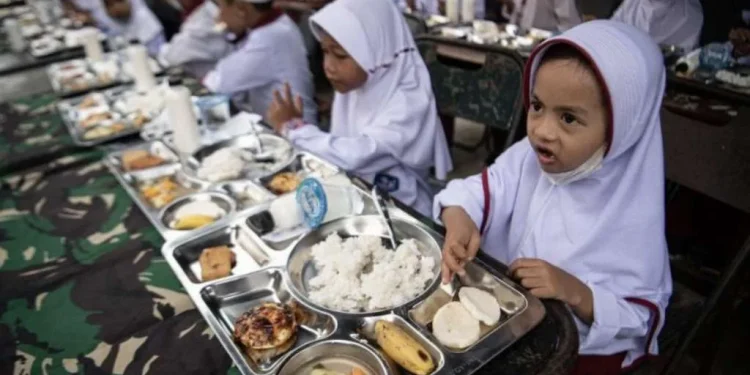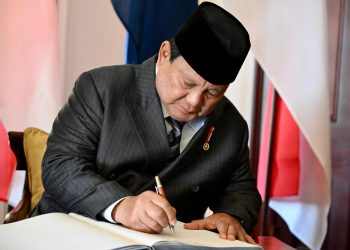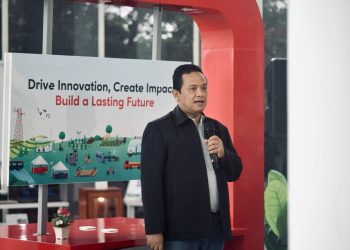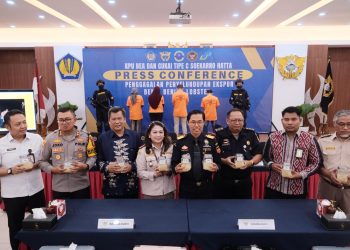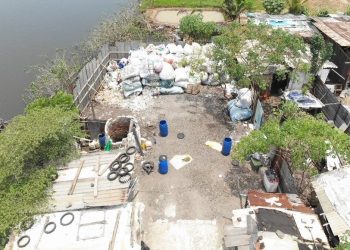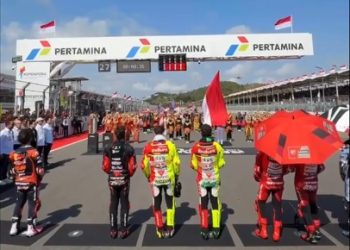Jakarta, Indonesia Sentinel — Sultan Baktiar Najamudin, Chairman of the Indonesian Regional Representative Council (DPD), has proposed an unconventional funding source for the government’s Free Nutrition Program (MBG): confiscated corruption funds. The suggestion comes as a solution to address the program’s financial constraints.
“I believe the President, with his authority, can act as a ‘Robin Hood’ for the underprivileged,” Sultan stated in a press release on Friday, January 17, 2025.
Leveraging Corruption Funds
Sultan argued that utilizing funds recovered from corrupt individuals, particularly those hidden abroad, could effectively support MBG. “We will recommend to the government that these funds be redirected to ensure the program’s success,” he added.
According to Sultan, this is not the first time alternative funding sources have been suggested for Free Nutrition Program. Previously, he proposed using community zakat funds to finance the initiative. While these ideas are primarily intended to stimulate public and private sector engagement, they have sparked debate among lawmakers and the public.
“We’re simply encouraging everyone, including private entities and other community members, to support and monitor the success of this flagship program,” Sultan emphasized.
Zakat Funding Debate
Sultan’s earlier suggestion to use zakat funds for MBG also drew attention. He argued that involving public contributions like zakat could stimulate broader participation in the program.
“Why not allocate our substantial zakat funds to this cause?” Sultan remarked earlier in the week at the Parliament Complex in Jakarta. He also noted that foreign countries could contribute to the program, emphasizing the need for international collaboration.
However, this proposal was met with resistance from several lawmakers, including Hidayat Nur Wahid (HNW), Vice Chairman of PKS’s Advisory Council. HNW contended that zakat funds should remain dedicated to their primary purpose: assisting the poor.
“Zakat must be maximized to help those in need outside the MBG program,” HNW said, emphasizing that MBG should rely solely on the state budget (APBN).
APBN as the Core Funding Source
HNW further explained that the government has already allocated substantial funding for MBG through the APBN, which should suffice if utilized optimally. “The government should focus on ensuring the APBN funds—amounting to approximately IDR 71 trillion in the first phase—are managed effectively,” he added.
HNW also warned against using alternative funding sources that could violate religious principles. “Support for the program must align with established rules and should not compromise religious laws,” he said.
50 Students Suffer Food Poisoning After Consuming Indonesia Free Nutritious Meal Program
Call for Broader Collaboration
Sultan remains optimistic that his proposals will inspire greater collaboration among stakeholders. He suggested engaging foreign governments and private entities to provide additional support for MBG, ensuring the program’s sustainability and success.
Despite the controversy, MBG remains a crucial initiative aimed at addressing child malnutrition in Indonesia. Moving forward, balancing funding strategies with ethical and legal considerations will be vital to the program’s long-term viability.
(Becky)


